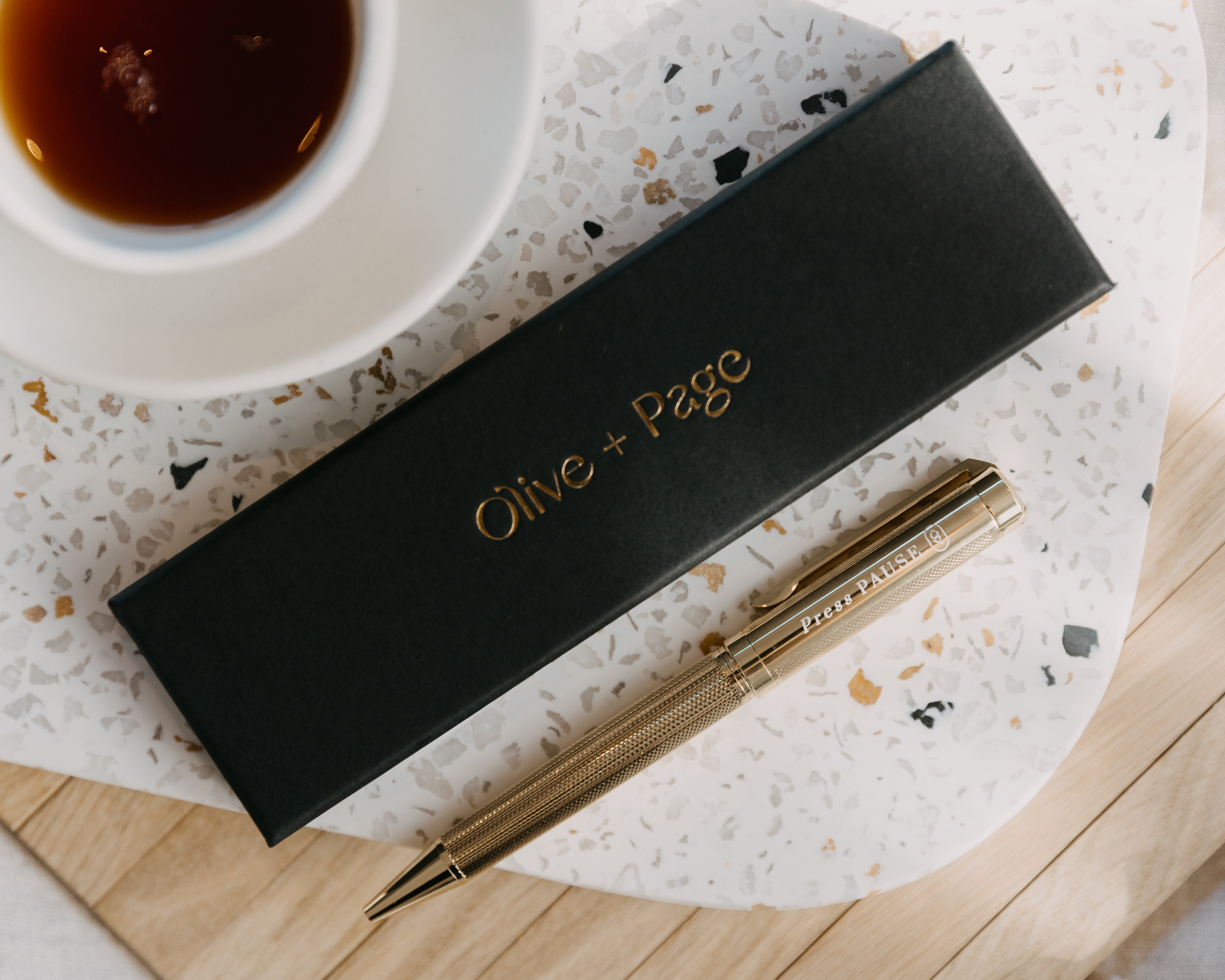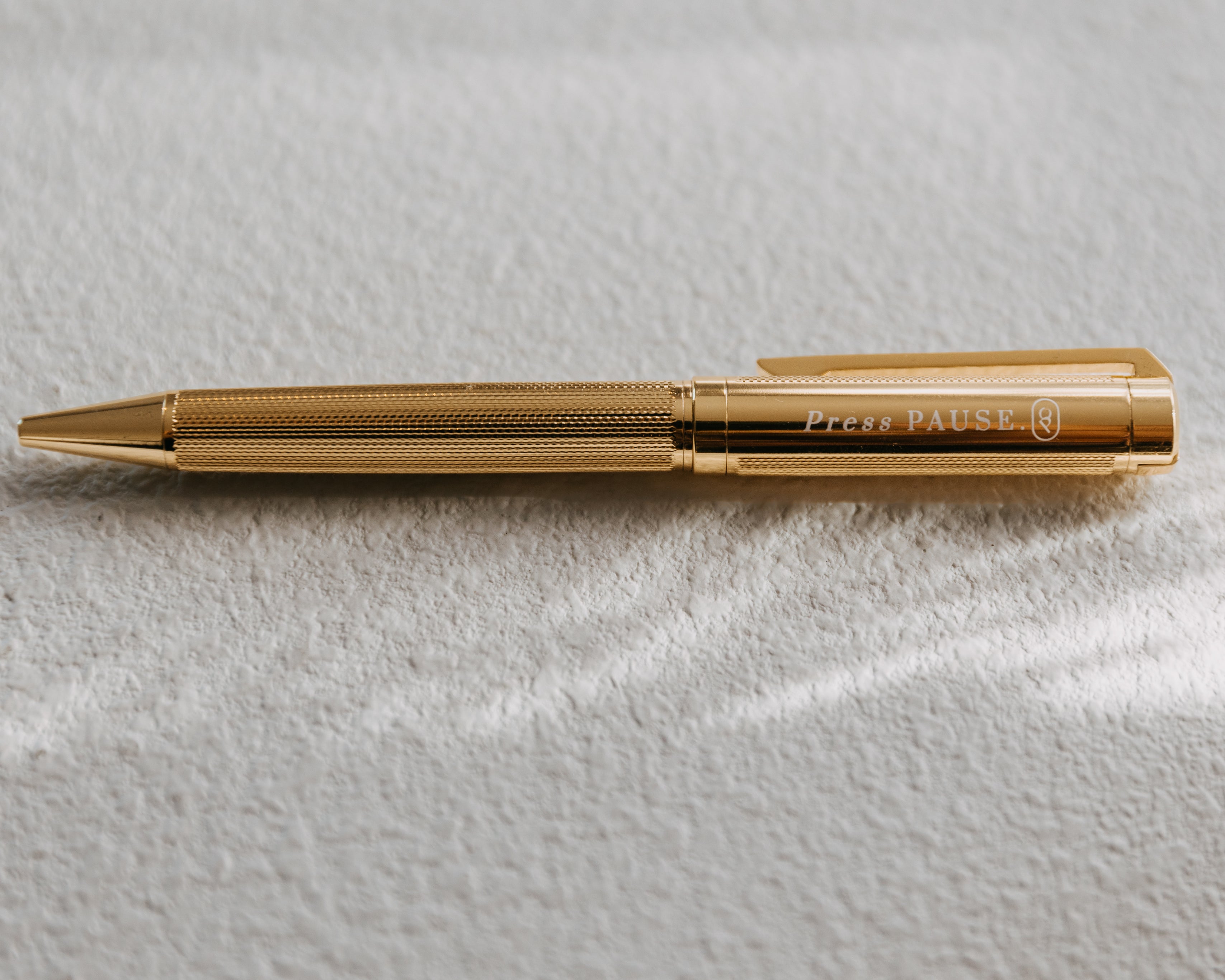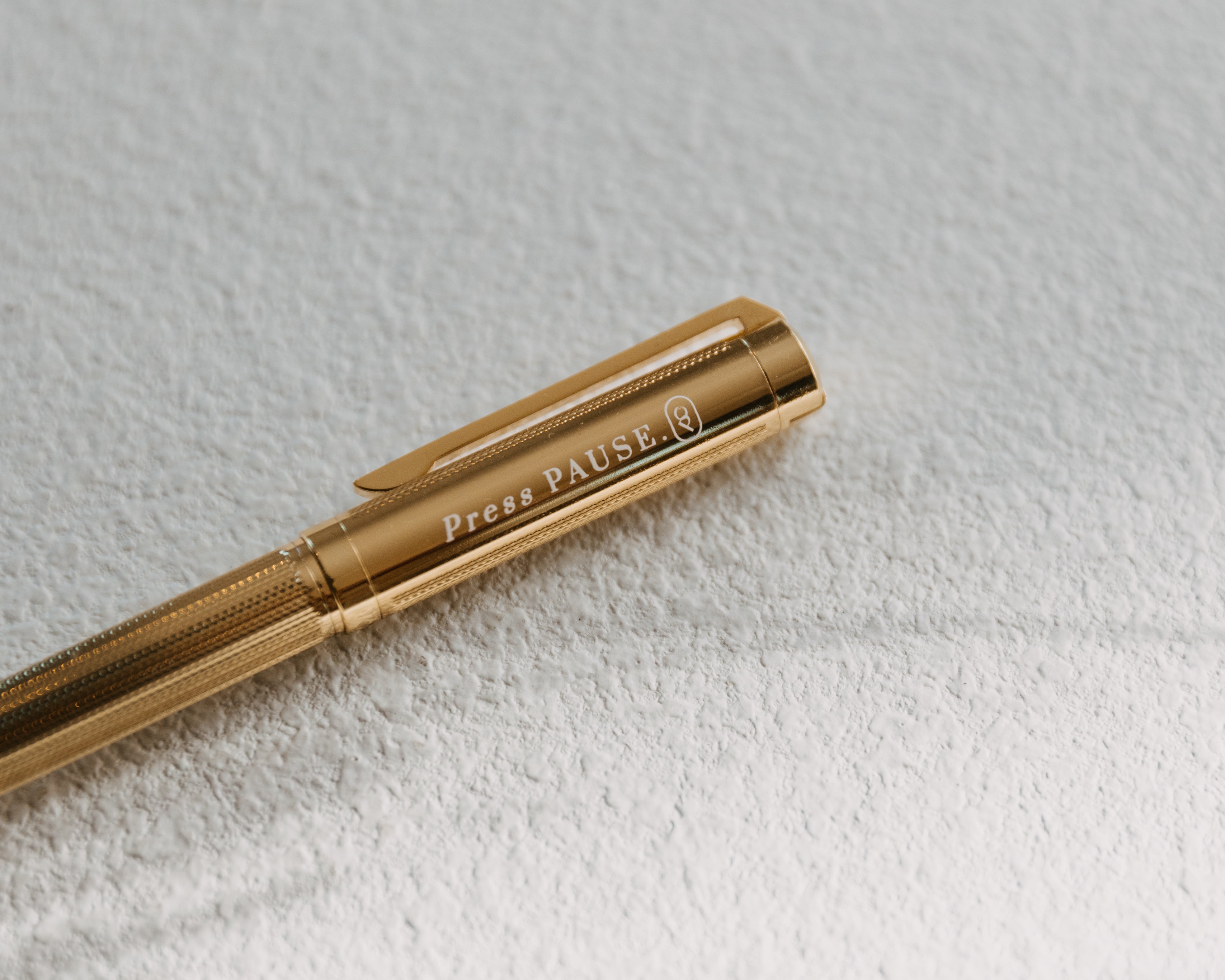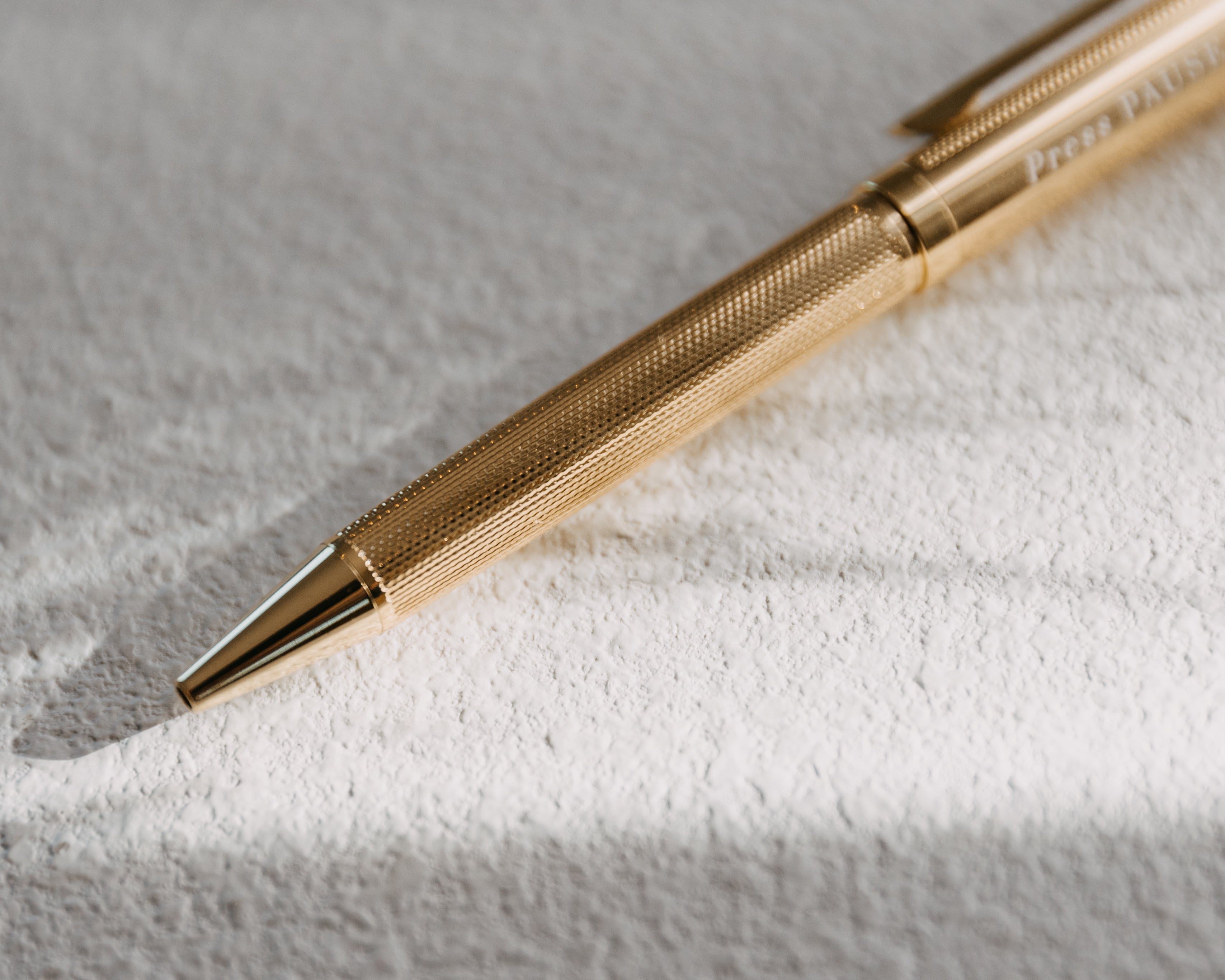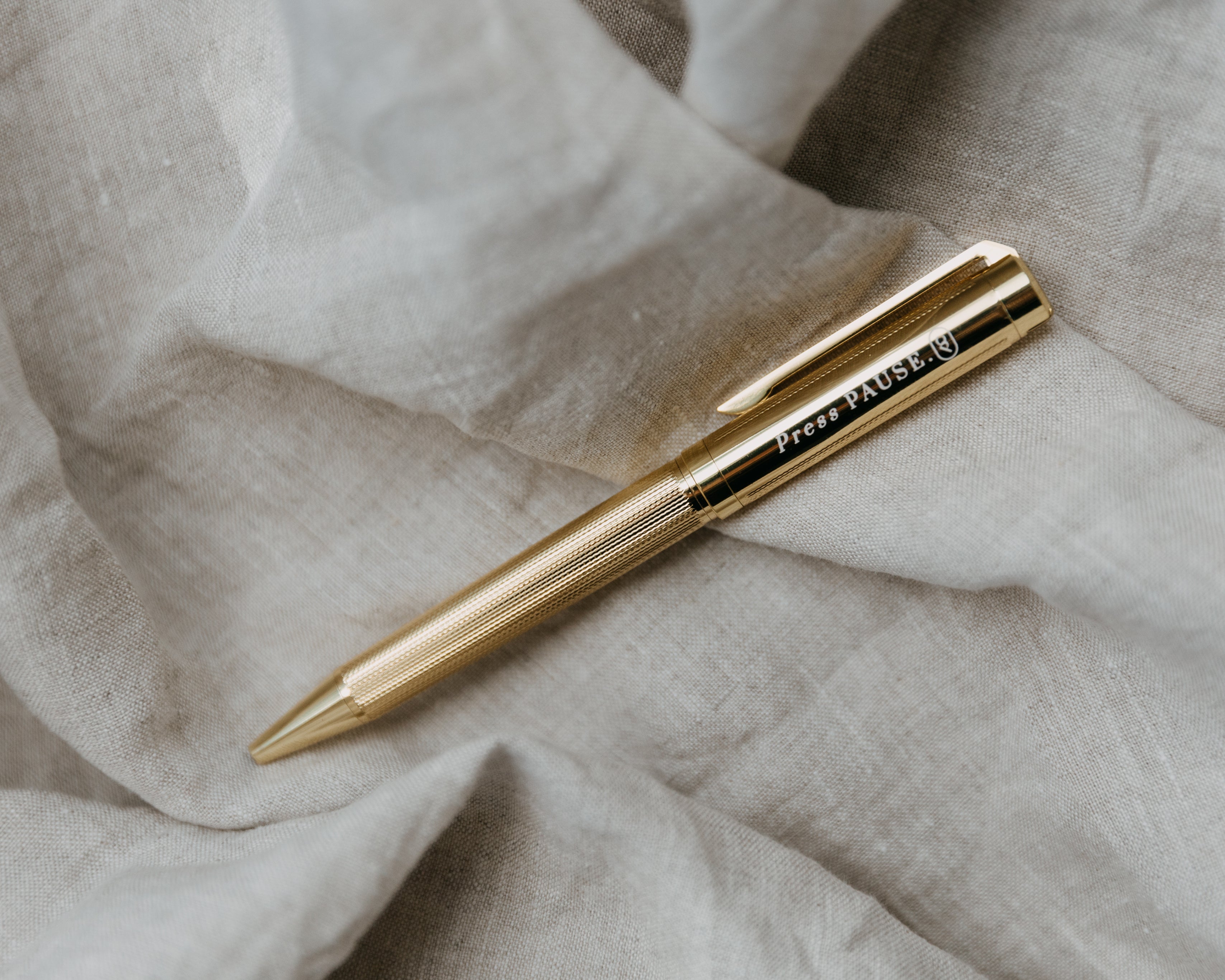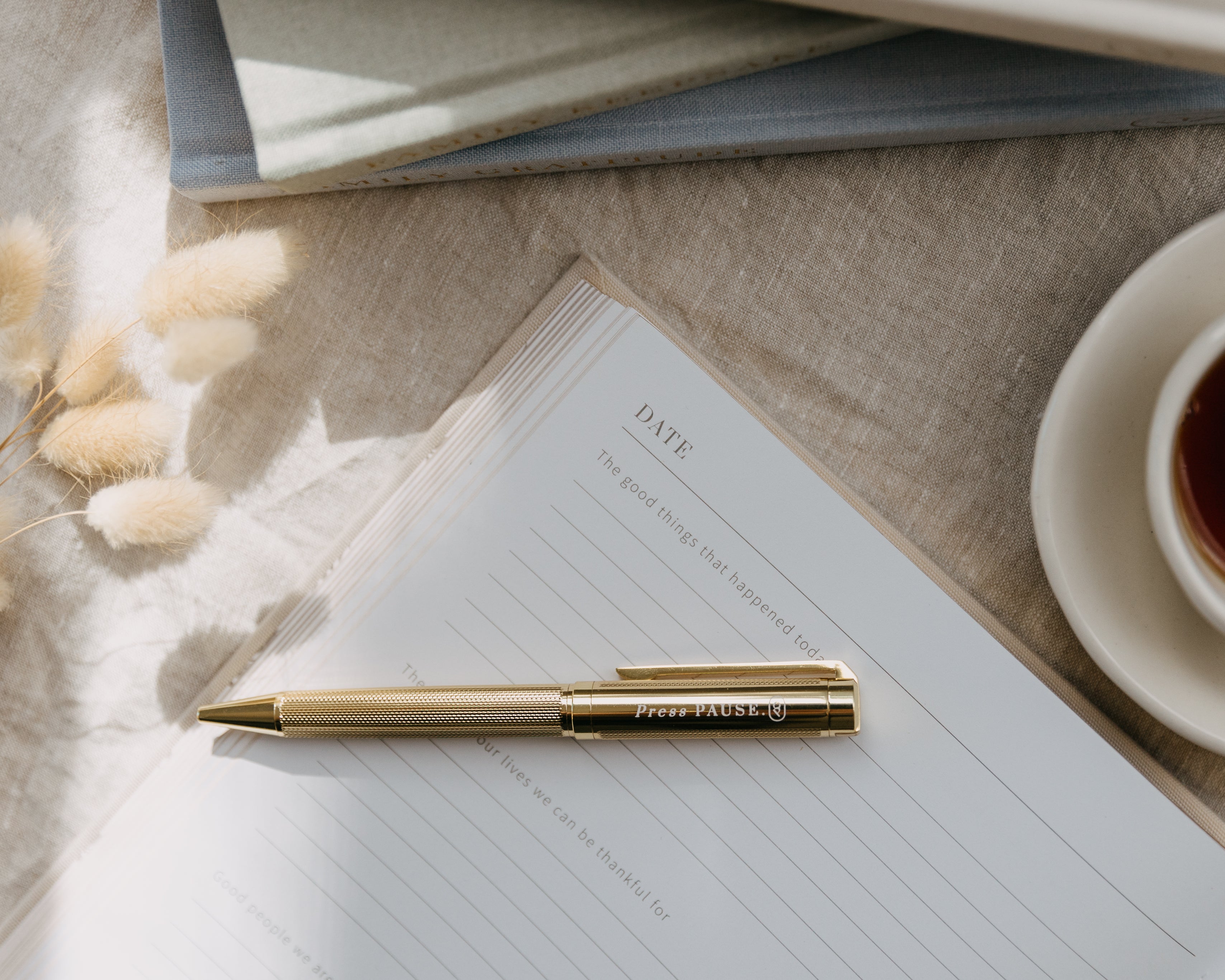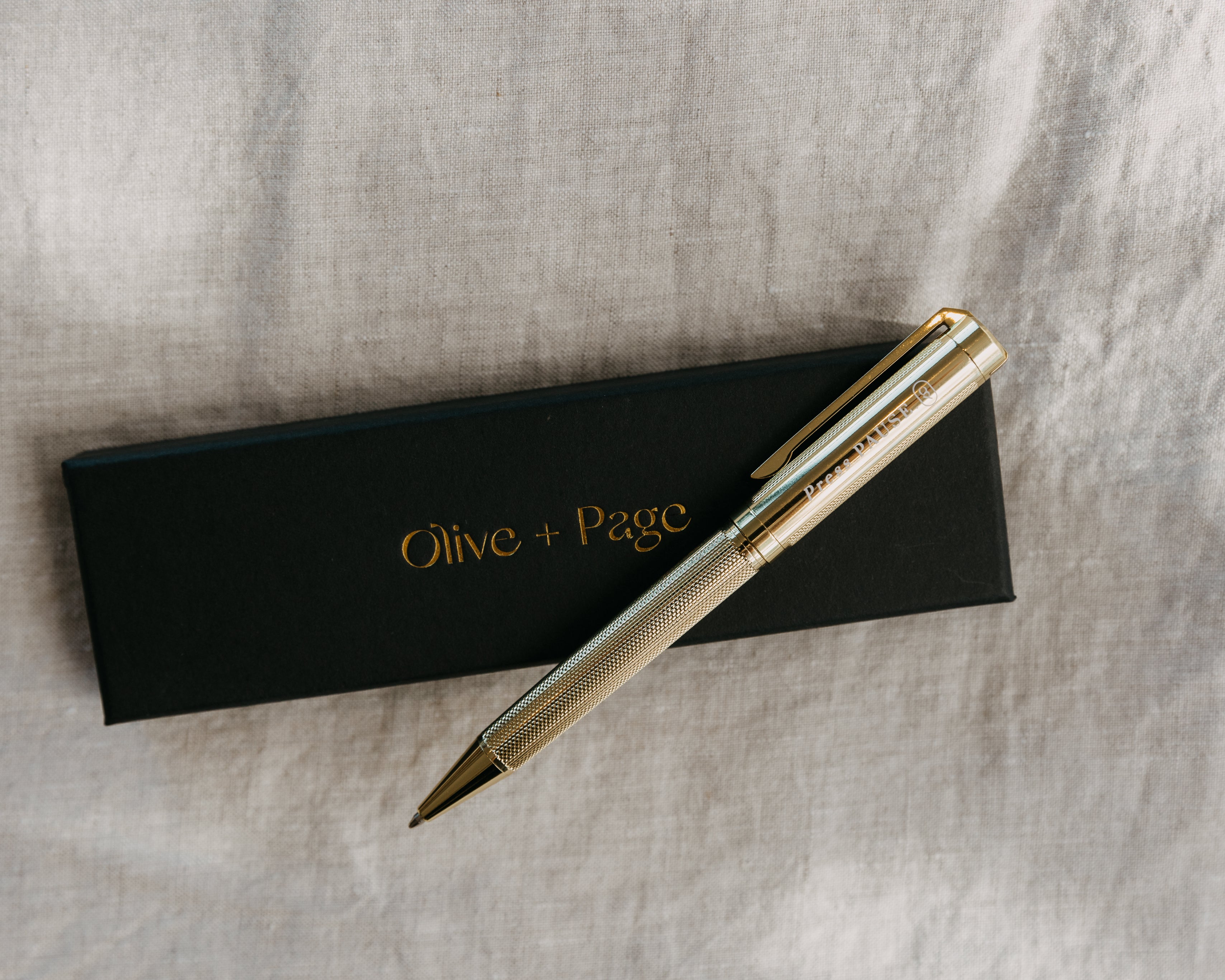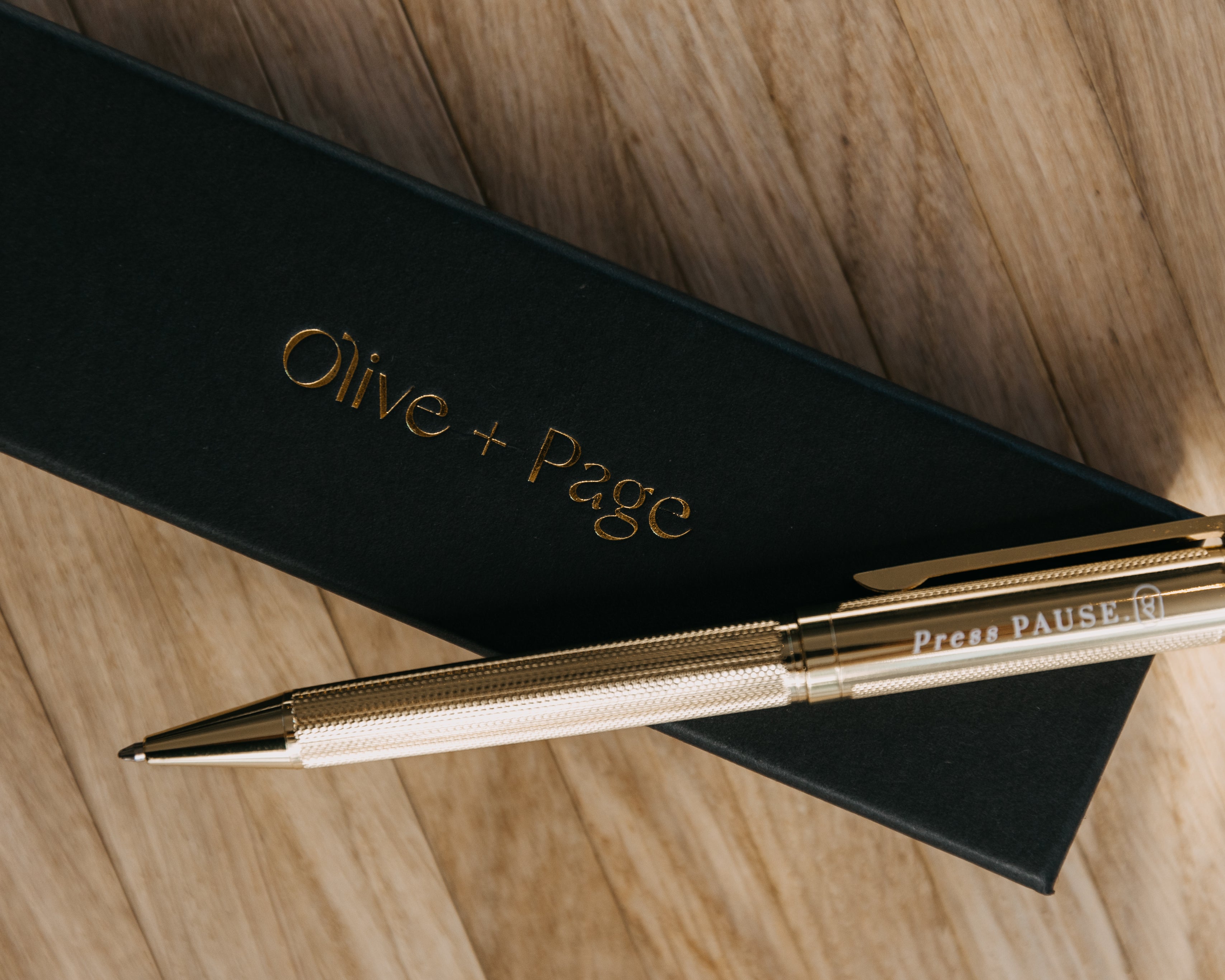In the hurried world we live in today, where every day can feel like a whirlwind of to-do’s and distractions, finding a moment to press pause can feel impossible. The Deloitte Women at Work 2023 study (which surveys 5,000 women globally) found that one third of women feel burned out, over half were concerned about their mental health and felt more stressed than a year ago, and over 60% struggled to switch off from work. The results are not surprising. Women, in particular, juggle a multitude of demands between home and work life, and in this ‘always on’ culture we live in today, there never seems like enough time to give some of it to yourself.
This is where journaling comes to the rescue! This ancient practice has stood the test of time for a reason – it’s a powerful tool that can transform your life, yet you can do it from anywhere, anytime, with just small pockets of time. It is completely achievable. There’s no need to insert lengthy or costly self-care rituals. Just take pen to paper, and start.
In this guide, we’ll delve into the science-backed benefits of journaling and provide nine valuable insights to help beginners start their journaling journey.
Are you ready? Of course you are!
Let’s go!

The power of journaling: Why it matters
Before we dive into the how-to, let’s take a moment to explore why journaling is a game-changer for your overall well-being. Journaling has gained increased attention in recent years, and has been tagged as the most powerful self-improvement activity.
Here is why:
-
Stress reduction: Numerous studies have shown that regular journaling can significantly reduce stress and anxiety. It provides an outlet for your thoughts and feelings, helping you process and manage them effectively. It provides necessary time to check in with yourself, to prioritise what’s most important, and can help you live with more focus and intention. If you practice gratitude in your journal, science also shows this is an effective antidote to stress and anxiety, with a myriad of positive ripple effects.
- Increased self-awareness: By reflecting on your experiences, and writing about thoughts and feelings, you gain a deeper understanding for your own emotions and behaviours. You can track daily activities or habits, notice when you feel good, or notice triggers, and then learn ways to help yourself accordingly. Increased self-awareness not only improves the relationship we have with ourselves, but in turn, it benefits the relationships we have with others too.
- Improved problem-solving: By creating space to write things down, you gain clarity, and can find solutions to challenging problems. Brainstorm. Explore perspectives. Draw diagrams. Plan courses of actions to certain difficulties. There’s no need to stay stuck! If you are finding a certain area of your life challenging, you can choose positive affirmations to help guide you in the direction you want to go.
- Goal achievement & greater purpose: Did you know that you are 42% more likely to achieve your goals if you write them down? Writing down goals forces you to get really clear on what you want to accomplish, it helps you focus on what’s important, and it helps you to remember! Working on goals, in turn, helps you live with greater purpose and contentment.
- Increased creativity: Journaling encourages you to think outside the box, explore new ideas and perspectives, and stimulates your creative side of the brain.
It should come as no surprise then, that journaling leads to greater clarity, improved resilience, and an overall improved sense of calmness and mindfulness. Not only does journaling improve mental well-being, but numerous studies have revealed improvements in physical well-being too.
So if there are so many great benefits to journaling, and we can do it from anywhere, anytime – why don’t more people actually journal?!
The answer is, that it can feel intimidating at first, right? How do you start?! Where to begin?!
And like any new habit that is good for our well-being, it’s not always easy to make the change, and stick with it to get the results you desire.
Below we have outlined 9 tips for beginners, to help start their journaling practice.

All aboard the journaling train: 9 tips to get you started
-
Start small: Don’t overwhelm yourself by committing to lengthy daily entries. Begin with just a few minutes each day, and gradually increase the time as you become more comfortable. Do what feels good for you.
-
Find your ideal time: What time of day works best for you: Is it first thing in the morning when you wake up? Is it at lunchtime when you take a break from work? When your toddler takes a day nap? Or perhaps the evenings feel more spacious? Whatever time works best, stick to that time of day and leave your journal somewhere you can see it (like on your bedside table!).
-
Tie it to an existing habit: Research states that the best way to create a new habit, is to tie it to an existing one. So, could you journal while you have your morning coffee? Perhaps after your morning shower, or following a daily meditation? Or would it suit better to journal as soon as you get into bed in the evenings, with a relaxing tea? Consistency is key to reap the well-being benefits of journaling, so making it part of your daily routine will help to see positive changes over time.
-
Experiment: When you’re just starting out, you might like to experiment with different styles of journaling, and find what feels good for you. You could try daily journaling, where you write a reflective account of your day, track habits, review experiences, and emotions. You might like to try gratitude journaling, where every day you write what you are thankful for (this is a personal favourite of mine – I reflect on both my last 24 hours, as well as my life in general). You could try free-writing journaling where you write whatever comes up in your thoughts (you could check out the concept of morning pages stream-of-consciousness journaling), visual journaling if you struggle to express yourself in words, or you could journal with brainstorm pages full of lists, ideas, dreams, goals, etc, and add to them as new ideas pop into your mind (this is also another favourite of mine!).
-
Choose your journal: Pick a journal that resonates with you. What draws you in and what feels nurturing? A journal can act as your helpful companion, especially if it includes well-crafted prompts that guide you on your journey. Do you want a gratitude, self-care, well-being journal with prompts? Do you want a journal for setting goals? Do you want more of a diary style journal to record your daily activities and habits? Or do you want something where you can just free-write every day? If you invest in a special journal that you LOVE the look and feel of, you will be more likely to use it.
-
Let go of perfection: A journal is a safe space for your thoughts, reflections, and intentions. By no means does it have to contain perfect grammar, spelling, or beautiful writing. Just pick up a pen and write – whichever way it looks and comes out. Scribble. Draw. Doodle. Write upside down if you like! Just use it your way, nobody else has to see it except you (that is, unless of course, this is a keepsake journal - in which case you may want to write in a readable way!)
-
Be candidly honest: The benefits of journaling really come in when you are completely open and honest with yourself. Express what is true to you, without judgement, or fear of being judged. Write for your eyes only. Think of your journal as your ultimate companion who is a trusted confidant. This is the best time to be real with yourself.
-
Reflect and review: Regularly review your journal entries to track your progress, see patterns in activities, habits, or emotions, and celebrate how far you’ve come! Some journals include regular weekly or monthly review pages for you, to help remember to do this.
-
Make it a beautiful ritual you look forward to: Nobody wants an extra ‘to-do’ that feels like a hassle to fit in. If you create a wholesome nourishing ritual to press pause and take a moment – just for you – you’re more likely to look forward to it during your day. Perhaps you could head outside in the morning sunshine to your favourite part of your backyard to journal. Take five deep breaths and notice what’s around you before you begin. You could hop back into your cosy bed with your favourite hot drink and marvel at the view, or put on some uplifting music while you sit with pen to paper. Make it feel good for YOU!

Starting a journal practice can feel daunting at first, but by starting small, and committing to a daily ritual that feels good for YOU - it becomes an enriching and transformative experience. Treat it as your loyal confidant. Experiment. Write your heart out. Embrace the power of pen to paper and fully LIVE the ebbs and flows of this beautiful life.
p.s. If you’re looking for prompted journals to guide you on your journey, have a look at our Joy Journal for busy mothers (a rare combination of science-backed methods to improve your mental well-being and ensure you're taking care of yourself). YOU, our new well-being journal is an incredible guided journal to help you rediscover who you are, work on goals, and create greater life balance, while making it easy to show up for yourself! Both of these journals include explanatory notes, affirmation examples, gratitude prompts, and reflection pages. Our family gratitude journal is also a wonderful place to begin an uplifting ritual to teach your family gratitude.
Please pop me a line if you have any questions!
With love, and a tonne of gratitude for being here,
Livvy X


